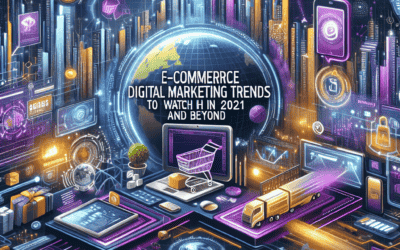In the ever-evolving landscape of marketing, personalized marketing has emerged as a powerful tool for businesses to engage their target audiences on a more intimate level. By tailoring marketing efforts to individual preferences, behaviors, and demographics, businesses have the potential to boost customer loyalty, increase conversions, and ultimately drive revenue growth. With advancements in technology, data analytics, and consumer expectations, personalized marketing is becoming increasingly relevant in today’s competitive market. Here are some key trends to keep an eye on as personalized marketing continues to rise in prominence.
1. Artificial Intelligence and Machine Learning
One of the major drivers behind the rise of personalized marketing is the increasing use of artificial intelligence (AI) and machine learning algorithms. These technologies enable businesses to analyze vast amounts of data to identify patterns, preferences, and behaviors of individual customers. By leveraging AI-driven insights, businesses can create highly targeted marketing campaigns that resonate with their audience on a personal level. From recommending products based on past purchases to predicting future buying behaviors, AI and machine learning are revolutionizing the way businesses engage with their customers.
2. Predictive Analytics
Predictive analytics is another key trend in personalized marketing that is gaining traction among businesses. By using historical data and statistical algorithms, businesses can forecast future trends, behaviors, and outcomes to make more informed marketing decisions. Predictive analytics allows businesses to segment their audience more effectively, personalize content based on individual preferences, and optimize marketing campaigns for better results. As the demand for data-driven marketing strategies continues to grow, predictive analytics will play a crucial role in helping businesses stay ahead of the competition.
3. Omni-Channel Marketing
In today’s digital age, consumers interact with brands across multiple channels, including websites, social media, email, and mobile apps. Omni-channel marketing is a strategy that aims to provide a seamless and consistent experience for customers across all touchpoints. By integrating data from various channels, businesses can create personalized marketing campaigns that engage customers at every stage of the buying journey. Whether a customer is browsing a website or shopping in-store, omni-channel marketing ensures that the messaging is relevant and tailored to their specific needs and preferences.
4. Hyper-Personalization
Hyper-personalization takes personalized marketing to the next level by delivering individualized experiences to customers in real-time. By leveraging customer data, businesses can create dynamic content, product recommendations, and offers that are tailored to each customer’s unique preferences and behaviors. From personalized email campaigns to targeted social media ads, hyper-personalization allows businesses to connect with their audience on a one-to-one basis, driving higher engagement and conversion rates. As customers continue to expect more personalized experiences from brands, hyper-personalization will become increasingly important for businesses looking to stand out in a crowded market.
5. Customer Data Privacy
As businesses collect more data to fuel their personalized marketing efforts, customer data privacy has become a growing concern among consumers. In light of recent data breaches and privacy scandals, consumers are becoming more wary of how their personal information is being used by businesses. To build trust and credibility with their audience, businesses must be transparent about their data collection practices and ensure that customer data is kept secure and protected. By prioritizing data privacy and implementing robust security measures, businesses can demonstrate their commitment to respecting customer’s privacy and earning their loyalty.
Conclusion
The rise of personalized marketing is reshaping the way businesses engage with their customers, offering new opportunities to connect on a deeper level and drive measurable results. By embracing trends such as artificial intelligence, predictive analytics, omni-channel marketing, hyper-personalization, and customer data privacy, businesses can create more personalized and meaningful experiences for their audience. As personalized marketing continues to evolve, businesses must stay ahead of the curve by leveraging data-driven insights, adopting innovative technologies, and prioritizing customer trust and privacy. By keeping an eye on these key trends, businesses can position themselves for success in an increasingly competitive market landscape.
In conclusion, the future of marketing is personalized. By understanding and implementing these trends, businesses can create a competitive advantage and build stronger relationships with their customers. Personalized marketing is not just a trend, but a fundamental shift in how businesses connect with their audience. It’s time for businesses to embrace the power of personalization and elevate their marketing strategies to new heights.
Looking for Affordable Digital Marketing For Your Business? View our Digital Marketing Services
Schedule a Digital Marketing Strategy Call




0 Comments